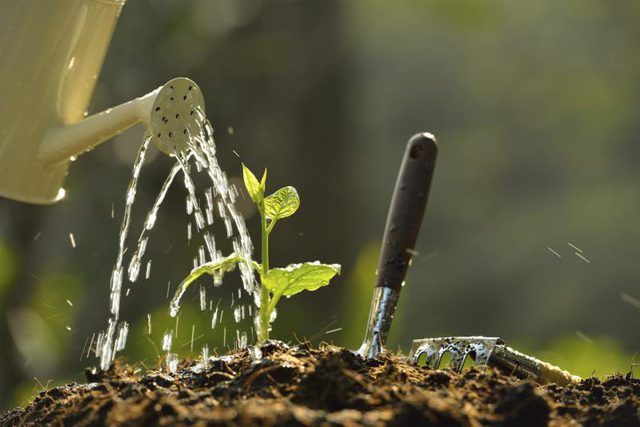Bulbs
Flower Basics
Flower Beds & Specialty Gardens
Flower Garden
Garden Furniture
Garden Gnomes
Garden Seeds
Garden Sheds
Garden Statues
Garden Tools & Supplies
Gardening Basics
Green & Organic
Groundcovers & Vines
Growing Annuals
Growing Basil
Growing Beans
Growing Berries
Growing Blueberries
Growing Cactus
Growing Corn
Growing Cotton
Growing Edibles
Growing Flowers
Growing Garlic
Growing Grapes
Growing Grass
Growing Herbs
Growing Jasmine
Growing Mint
Growing Mushrooms
Orchids
Growing Peanuts
Growing Perennials
Growing Plants
Growing Rosemary
Growing Roses
Growing Strawberries
Growing Sunflowers
Growing Thyme
Growing Tomatoes
Growing Tulips
Growing Vegetables
Herb Basics
Herb Garden
Indoor Growing
Landscaping Basics
Landscaping Patios
Landscaping Plants
Landscaping Shrubs
Landscaping Trees
Landscaping Walks & Pathways
Lawn Basics
Lawn Maintenance
Lawn Mowers
Lawn Ornaments
Lawn Planting
Lawn Tools
Outdoor Growing
Overall Landscape Planning
Pests, Weeds & Problems
Plant Basics
Rock Garden
Rose Garden
Shrubs
Soil
Specialty Gardens
Trees
Vegetable Garden
Yard Maintenance
How Does Soapy Water Affect Plants?
How Does Soapy Water Affect Plants?. Soapy water can benefit plants, particularly in controlling certain insects, but it’s important to ensure that the soap product you use doesn’t have additives that are harmful to plants and that you dilute it sufficiently to avoid damage. When using conserved household waste water, avoid contact with...

Soapy water can benefit plants, particularly in controlling certain insects, but itís important to ensure that the soap product you use doesnít have additives that are harmful to plants and that you dilute it sufficiently to avoid damage. When using conserved household waste water, avoid contact with edible portions of the plant. Always test a small portion of the plant for tolerance to the chemicals.
Soapy Water Types
The chemical composition of soapy water differs dramatically depending on the kind of soap you use. Commercial insecticidal soap is the safest choice because itís formulated specifically to control pests and minimize injury to plants. Liquid hand soaps and detergent for hand-washing dishes -- not the kind used for dish-washing machines, which typically has high sodium content -- also can be effective and, of course, are less expensive. The risk is that additives, such perfumes, dyes and moisturizers, may be harmful to certain plants. Before using such household soaps, test the diluted mixture on a small portion of the plant and wait a few days to see if there is damage.
Insecticidal Properties
Soapy water is effective in killing small, soft-bodied insects, such as spider mites, aphids, white flies, psyllids and mealy bugs. Hard-shelled and larger insects, such as beetle larvae and caterpillars, often are immune to its effects. Soap kills by disrupting insects' cell membranes and it also may remove their protective waxy coating, which causes their bodies to dehydrate. Soapy water only kills insects if you apply it directly to their bodies. Be sure to spray the undersides of leaves where pests often hang out. Repeat the application every four to seven days to control new visitors or hatchlings.
Household Waste Water
You can use water conserved from your shower, hand dish washing and laundry -- sometimes called gray water -- to irrigate your garden, with certain caveats. Gray water may contain bacteria. Do not store it for more than 24 hours and keep it well away from the edible parts of food crops. Do not use gray water on household plants because they donít have sufficient soil to disperse harmful additives. Only use laundry water if your detergent is liquid, low in sodium and free of borax, and rotate where you use it because repeated use in the same area can raise the alkalinity of the soil.
Recommended Dosage
For most plants, a concentration of 2 percent to 3 percent soap is effective. Use 2 teaspoons of detergent per pint or 5 tablespoons per gallon for a 2 percent solution, and 1 tablespoon per pint or 8 tablespoons per gallon for a 3 percent solution. Start with a minimal dosage and test a small area of the plant for effectiveness and damage, then raise the concentration if the insects don't die and the plant has no damage.
Vulnerable Plants
Some plants are too delicate for even specially formulated commercial insecticidal soaps. These include sweet peas, tomatoes, hawthorn and some flowering fruit trees, such as plum and cherry. Do not use any type of soapy water on these plants.